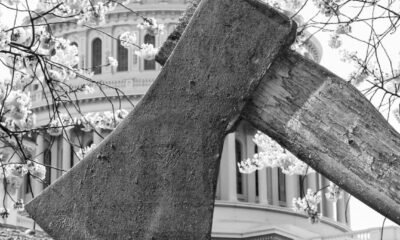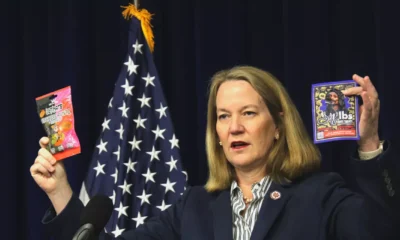2022 election
Court Upholds Constitutionality of Arizona’s ‘Dark Money’ Disclosure Law

The Arizona Court of Appeals has affirmed the constitutionality of the anti-dark-money law, a significant ruling for supporters of the Voters Right to Know Act, which was approved by voters as Proposition 211 in 2022. The law mandates that any individual or organization spending over $50,000 on statewide campaign media or $25,000 on local elections must disclose the original source of any contributions exceeding $5,000.
This ruling represents a second legal victory for the proponents of the law against a challenge brought by the Center for Arizona Policy and the Arizona Free Enterprise Club, both of whom argued that such disclosure infringes upon free speech, privacy, and other constitutional rights. These arguments echoed those made by GOP legislative leaders during an unsuccessful attempt to negate the proposition, which passed with more than 70% support from voters.
Terry Goddard, a former state attorney general and co-chair of the Prop. 211 campaign, expressed his satisfaction in a statement after the ruling. He noted that the court’s opinion directly addressed and dismissed the objections raised by opponents, stating, “I can’t imagine there is any other argument to be made.” While acknowledging an anticipated appeal to the Arizona Supreme Court, he doubted its success, citing the comprehensive nature of the ruling.
The court rejected claims from anonymous donors who feared harassment if their political contributions were publicly disclosed. It emphasized that no evidence of actual harassment had been provided, stating, “Not one incident of actual donor harassment was alleged.” Opponents also argued that disclosure breached privacy rights, but the court found that the need for transparent political financing outweighed such concerns.
Judge Jennifer Campbell, writing for the appellate panel, noted the government’s compelling interest in preventing corruption and ensuring an informed electorate. “Plaintiffs fail to articulate why the Act’s disclosure requirements are not substantially related to the State’s interest,” she wrote.
Under Prop. 211, groups like the Arizona Free Enterprise Club and Center for Arizona Policy, which are generally not required to disclose their donors under federal law, will now have to disclose funding sources related to electoral activities. Both organizations have historically opposed the proposition, citing fears of a “cancel culture” backlash. However, the court did not find sufficient evidence to support claims of a chilling effect on donor contributions.
In conclusion, the court’s decision reinforces the commitment to transparency in political funding, emphasizing the importance of disclosure in preventing the obscured influence of money in politics.


















